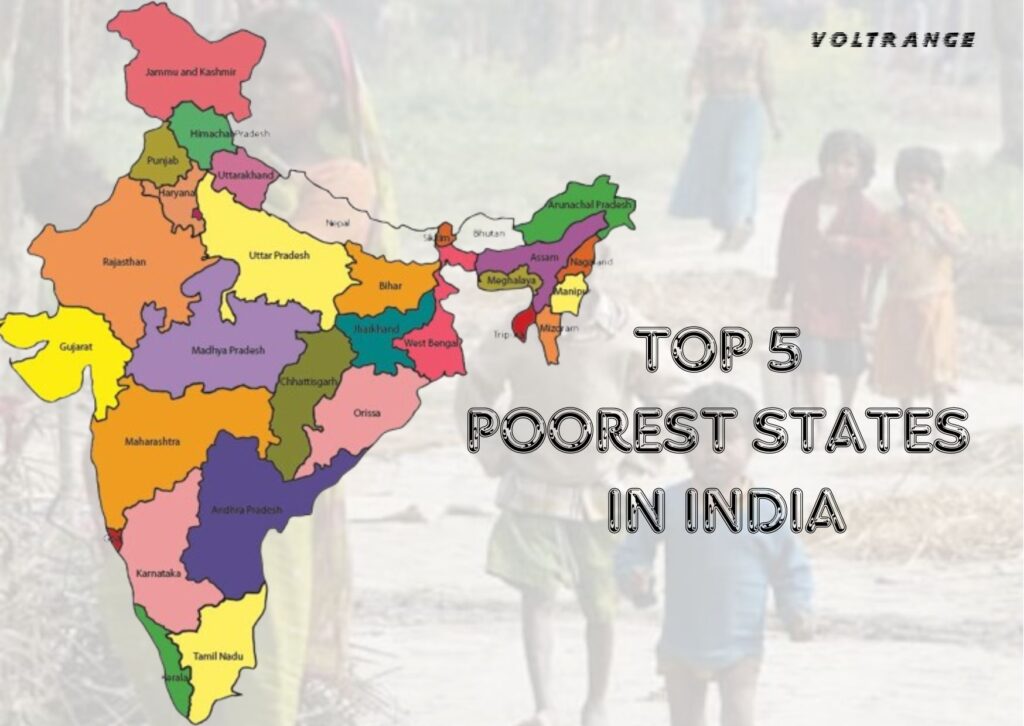
Top 5 Poorest States in India
In 2024, India continues its journey towards becoming an economic powerhouse, but the road remains uneven, with certain regions lagging far behind. This article aims to shed light on the country’s poorest states, highlighting areas where prosperity is lacking and targeted interventions are urgently needed. By examining the core challenges these states face, such as high poverty rates, outdated economic systems, and modernization struggles, we can better understand the complex issues behind economic stagnation. Our goal is not just to highlight the disparity but to encourage a dialogue on bridging these divides, so that every part of this diverse and vibrant nation can progress together. Let’s explore the topic further.
Bihar
Bihar remains one of the poorest states in India, with 51.91% of its population experiencing a Multidimensional Poverty Index (MPI) headcount ratio of 0.5 or higher. This staggering poverty rate is driven by deep-rooted issues such as institutional weaknesses, widespread illiteracy, and inefficient agricultural practices. These systemic challenges present significant obstacles to sustainable development and efforts to improve the quality of life for the people of Bihar.
Jharkhand
Jharkhand, the second poorest state, has an MPI of 42.16%. Poverty in Jharkhand is exacerbated by low literacy rates, poor school enrollment, high child mortality, and malnutrition. These long-standing educational and health challenges have kept a large portion of the population in poverty since Jharkhand separated from Bihar in 2000. Addressing these issues through targeted interventions in education, healthcare, and other quality-of-life improvements is essential for reducing poverty in the state.
Uttar Pradesh
Uttar Pradesh, with an MPI of 37.79%, ranks as the third poorest state in India. A significant part of its population experiences multidimensional poverty, impacting health, education, and living standards. Although there has been progress, with many people moving out of poverty in recent years due to improvements in sanitation, nutrition, and access to basic services, much of the population still faces severe hardships.
Madhya Pradesh
With an MPI of 36.65%, Madhya Pradesh has a considerable tribal population that suffers from more acute poverty than other communities in the state. The rural poor, particularly tribal communities, rely heavily on forest resources, emphasizing the need for sustainable development strategies. Policies tailored to the specific needs of these communities, including better access to essential services and economic opportunities, are crucial for poverty alleviation.
Meghalaya
Meghalaya, with an MPI of 32.67%, is the fifth poorest state in India. Major issues include extreme malnutrition, inadequate healthcare, and poor educational facilities. A significant portion of the population also lacks basic necessities such as clean cooking fuel and electricity. Addressing these multidimensional poverty aspects requires comprehensive efforts focused on improving health, education, and living conditions to enhance the overall standard of living.
Conclusion
As of 2024, India still grapples with significant economic disparities, with some regions left behind. Bihar, Jharkhand, Uttar Pradesh, Madhya Pradesh, and Meghalaya are among the states most affected by multifaceted poverty, highlighting the need for targeted interventions and sustained efforts to uplift marginalized communities. Achieving inclusive growth and equitable development across all regions is essential for ensuring that India’s prosperity benefits everyone, lifting every corner of the nation on its journey toward progress.





More Stories
Is Sansui an Indian Company? True Or Not
Handles Salary Revision and Appraisal: 10 Fact
Is Walmart an Indian Company? True Or Not